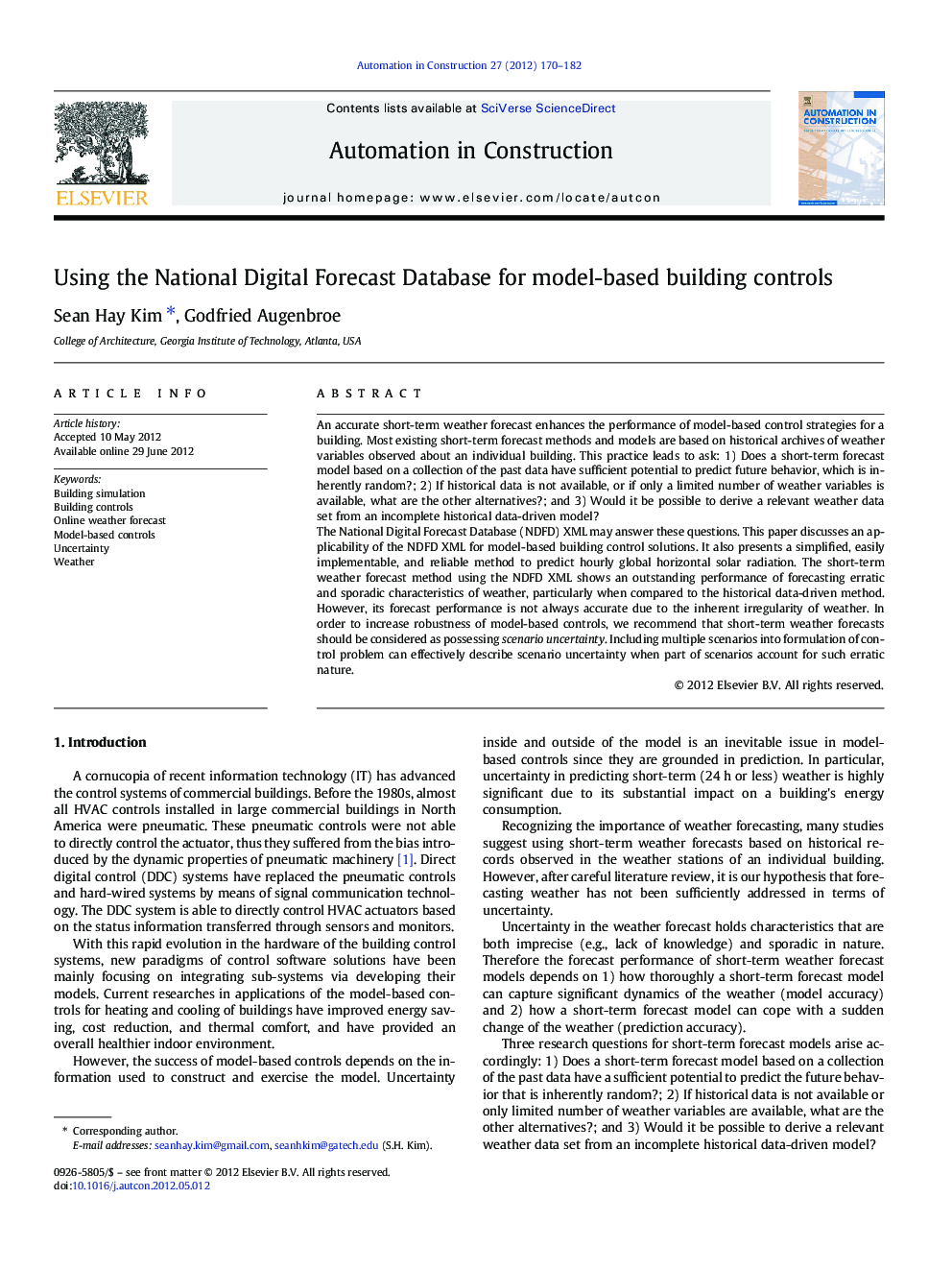| Article ID | Journal | Published Year | Pages | File Type |
|---|---|---|---|---|
| 246898 | Automation in Construction | 2012 | 13 Pages |
An accurate short-term weather forecast enhances the performance of model-based control strategies for a building. Most existing short-term forecast methods and models are based on historical archives of weather variables observed about an individual building. This practice leads to ask: 1) Does a short-term forecast model based on a collection of the past data have sufficient potential to predict future behavior, which is inherently random?; 2) If historical data is not available, or if only a limited number of weather variables is available, what are the other alternatives?; and 3) Would it be possible to derive a relevant weather data set from an incomplete historical data-driven model?The National Digital Forecast Database (NDFD) XML may answer these questions. This paper discusses an applicability of the NDFD XML for model-based building control solutions. It also presents a simplified, easily implementable, and reliable method to predict hourly global horizontal solar radiation. The short-term weather forecast method using the NDFD XML shows an outstanding performance of forecasting erratic and sporadic characteristics of weather, particularly when compared to the historical data-driven method. However, its forecast performance is not always accurate due to the inherent irregularity of weather. In order to increase robustness of model-based controls, we recommend that short-term weather forecasts should be considered as possessing scenario uncertainty. Including multiple scenarios into formulation of control problem can effectively describe scenario uncertainty when part of scenarios account for such erratic nature.
► Short-term weather forecasts have an inherently sporadic and discrete nature. ► They should therefore be considered as possessing scenario uncertainty. ► The NDFD outperforms the data-driven archive method in forecasting sporadic weather. ► The short-term forecast using the NDFD can replace the data-driven archive method. ► Including NDFD scenario into control problems can account for scenario uncertainty.
